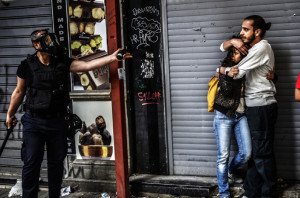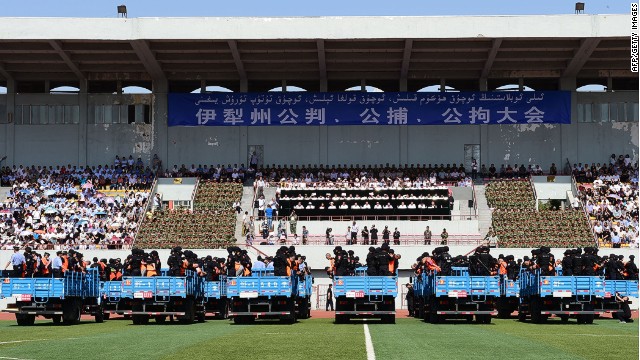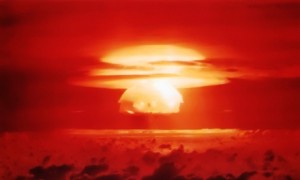by Mridula Tirumalasetti
Impunity Watch Reporter, South America

BOGOTÁ, Colombia – Colombia’s presidential candidate, Óscar Iván Zuluaga won the first round of voting on May 25 with 29.3 percent of the votes, ahead of President Juan Manuel Santos with 25.7 percent. Zuluaga will face Santos on June 15 in a run-off vote. In order to avoid a run-off vote in Colombia, Zuluaga would have had to win more than 50 percent of the votes. Polls show this has been the nation’s tightest election in years.
The most pressing issue of the campaign has been how to end the country’s 50-year conflict with the Revolutionary Armed Forces of Colombia, or FARC, a conflict which has claimed more than 215,000 lives. Santos has been negotiating with FARC in Cuba, and announced on May 16 that they had reached an agreement on three out of the five points, including land reform and political participation by the FARC. These negotiations have been said to bring the end of the fight against illegal drugs closer than ever.
Right-wing Zuluaga, who is backed by former President Álvaro Uribe, favors more of a military solution rather than peace talks. Zuluaga initially promised that, if elected, he would immediately suspend peace talks with FARC but has since softened his stance in exchange for Conservative Party leader, Marta Lucia Ramirez’s support in the run-off vote. Zuluaga has agreed to give FARC a chance to declare a ceasefire. In a speech after the first round of voting, Zuluaga said “The President of the Republic cannot and should not be manipulated by the FARC, the biggest drug cartel in the world today.” Zuluaga promised “a full-frontal assault on terrorism.” Santos has criticized Zuluaga’s acceptance of the idea of peace talks as hypocritical and “politicking.”
“Zuluaga’s triumph [in the first round] shows there’s an important part of society that doesn’t back the Havana talks,” said Alejo Vargas, who is a professor of political science at the National University. Some voters want a more firm approach when dealing with FARC. Voter Jhon Serrato said “You can’t just give them what they want, while they kill people.” Another voter, Lena Sanchez Rodriguez said “The office of the president has gotten weaker in the last four years” and “Santos doesn’t have a strong enough hand to deal with delinquents.”
Other voters such as Mariana Giraldo, support the Santos administration and the peace process. Giraldo said, “If there was a peace deal we would have more diplomatic agreements with other countries.”
A voter poll on Thursday, the first since Sunday’s first round of voting, showed Santos leading by one percent over Zuluaga. Still, almost 20 million of the 33 million registered voters did not vote. Additionally, approximately 800,000 voters voted a blank ballot in order to protest both of the candidates.
For more information please see:
Al Jazeera – Zuluaga wins first round of Colombia election – 25 May 2014
The Wall Street Journal – Colombia President Santos to Face Zuluaga in Runoff Vote – 25 May 2014
Bloomberg – Zuluaga Leads Santos Ahead of Colombia Presidential Runoff – 26 May 2014
Reuters – Colombia’s Zuluaga softens on FARC peace talks ahead of run-off vote – 29 May 2014


